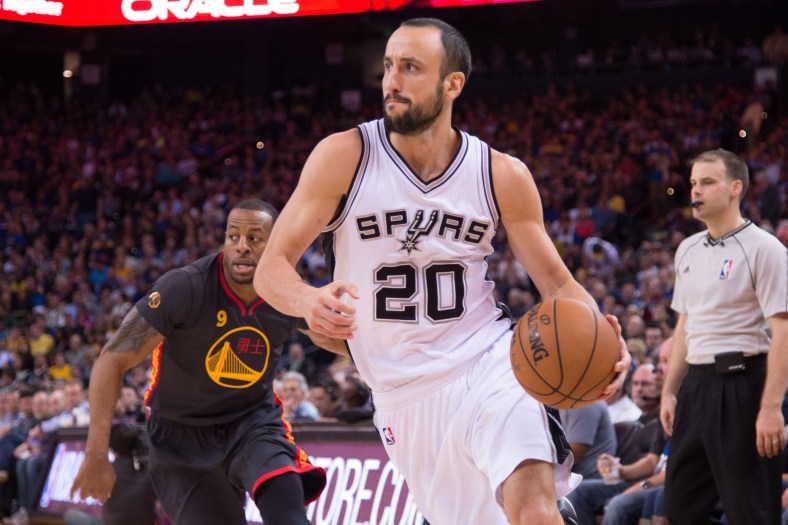
At the end of every NBA season, there are a plethora of players vying for the Sixth Man of the Year award, awarded to the best bench player.
The big picture: Throughout the years, the NBA has had many premier players elect to come off the bench to give their team the best chance to win. So, who exactly is the best of bench?
Ball of infusion: During the 1980s and 90s, NBA teams were routinely playing starters more than 36 minutes a game, barely using the bench. Nevertheless, the 80s saw the rise of the sixth man with some very familiar names providing a spark off the bench.
Don’t You (Forget About Me):
- Kevin McHale (Boston Celtics): The first two-time winner (1984, 1985), averaged 19.1 points, 8.2 rebounds, 1.5 assists when he won.
- Bill Walton (1986, Boston Celtics): Had 7.6 points, 6.8 rebounds, 2.1 assists. Notable that he averaged the fewest points of any winner.
- Ricky Pierce (Milwaukee Bucks): The second player to win it twice (1987, 1990). Averaged 21.2 points, 3.1 rebounds, 2.1 assists. His 23 points per game in 1990 is the most scored by a sixth man.
In spite of the fact that McHale, Walton and to some extent, Pierce are recognizable names, the latter two are typically unmentioned when talking about the greatest sixth men of all time.
Hey Now, You’re An All-Star: As Pierce ushered in the 90s, a few future All-Stars and sharpshooters would win the award.
- Detlef Schrempf (Indiana Pacers): The third player to win it twice (1991, 1992), he was the second player to do it back-to-back. Put up 16.7 points, 8.8 rebounds, 3.8 assists in the years he won.
- Cliff Robinson (1993, Portland Trailblazers): Had 19.1 points, 6.6 rebounds, 2.1 assists in 31.4 minutes. Came off the bench in 70 games.
- Dell Curry (1994, Charlotte Hornets): Shot 45.5/40.2/87.3 percent from the field en route to 16.3 points, 3.2 rebounds, 2.7 assists. Second all-time in Hornets history with 929 3-point field goals made.
- Toni Kukoc (1996, Chicago Bulls): As part of the 72-10 Bulls, he averaged 13.1 points, 4 rebounds, 3.5 assists while hitting 40.3 percent of his 3-pointers.
Although great players won the award in the 90s, a new breed of sixth men was about to take hold in the new millennium.
A New Frontier: As the calendar turned into the 2000s, many recognizable names took the Sixth Man of the Year Award such as:
- Antawn Jamison (2004, Dallas Mavericks): 14.8 points, 6.3 rebounds, 0.9 assists per game in 29 minutes, shooting 53.5/40/74.8 percent in 82 games, 80 off the bench.
- Mike Miller (2006, Memphis Grizzlies): 13.7 points, 5.4 rebounds, 2.7 assists per game in 30.6 minutes, shooting 46.6/40.7/80 percent in 74 games, 65 off the bench.
- Manu Ginobili (2008, San Antonio Spurs): 19.5 points, 4.8 rebounds, 4.5 assists per game in 31.1 minutes, shooting 46/40/86 percent in 51 games off the bench.
- Jason Terry (2009, Dallas Mavericks): 19.6 points, 2.4 rebounds, 3.4 assists per game in 33.7 minutes, shooting 46.3/36.6/88 percent in 74 games.
That said, none of those names were able to win the award more than once, unlike these next few names in the 2010s.
Into the “Willennium”: While some notable names won the award in the 2010s like James Harden (2012) and Eric Gordon (2017), the decade had been ruled by Jamal Crawford.
King Crawford:
- Crawford won it three times (2010, 2014, 2016) and is the only three-time winner.
- In the years he won, he averaged 16.9 points, 2.2 rebounds, 2.8 assists per game in 29.4 minutes.
- Shot 42.3/36.1/87.5 percent from the field.
However, a new player appears primed to take that crown away from Crawford: Lou Williams.
Stats on “Sweet” Lou:
- Williams won the award twice (2015, 2018) and came in third place in 2017.
- Averaged 19 points, 2.2 rebounds, 3.7 assists per game in 29 minutes.
- Shot 42/35/87 percent from the field.
Being only 32 and prominently featured in the Los Angeles Clippers offense, it’s not outside the realm of possibility to see Williams win as many as three more awards. That would just be sweet for Lou.
The Bottom Line: Throughout the years, many All-Star-caliber and even Hall of Famers have decided to come off the bench to give their team the best chance of success. That said, Lou Williams is a valid Sixth Man of the Year candidate every year. In the end though, Manu Ginobili is the best sixth man of all time, not because of individual accolades, but because of his impact on the NBA as a whole.